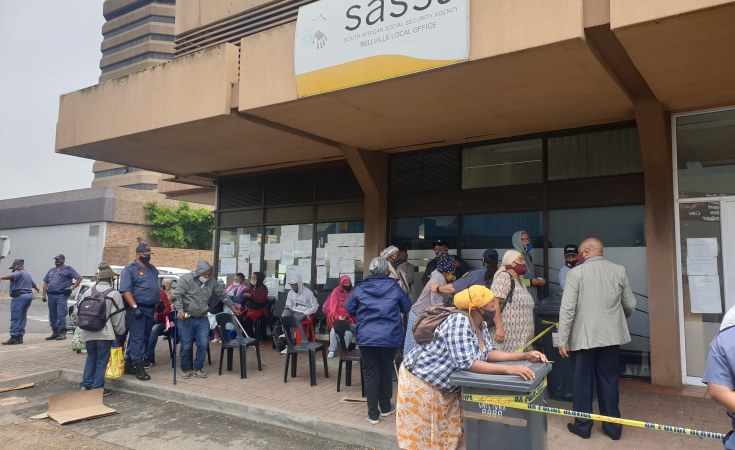No, South Africa's social grant agency has not released a R700 grant application form for 2024 through this link - it's a scam
IN SHORT: Social media users are claiming that the South African Social Security Agency has released a grant application form for 2024. But it's a scam - the link is dodgy, and Sassa is urging the public to use official channels only.
"The South African Social Security Agency (SASSA) R700 Grant Application Form 2024 is Out," starts a message sent to Africa Check several times by subscribers to our WhatsApp lines.
The message continues:
The online registration exercise which is the quickest to apply for is now out for all bonafide citizens only who needs helping hands in their various activities. All South Africans under the age 18-65 years can apply.In 2024 Over 675,000 citizens will receive R700 payment. The Payments have just began for all applicants,Register To be Part of the Beneficiaries.Check Eligibility and Apply here: https://lb.ke/R700-Cash-Grant-Transfer
The same claim has been doing the rounds on Facebook in South Africa.
The South African Social Security Agency (Sassa) distributes grants on a monthly basis to vulnerable and poor people in the country.
Africa Check has previously fact-checked numerous claims on social grants from Sassa.
So is this any different? We checked.
Link blocked by antivirus
As with most of the scams we debunk, our first clue that the message was not legit was the unofficial-looking link attached to the WhatsApp message.
When we clicked on the link, our antivirus software said it was infected with "URL: Blacklist", meaning that the website had previously engaged in malicious behaviour.
When we clicked on the link attached to the Facebook messages, we were taken to a dodgy looking website with a blurry Sassa logo.
The site shows a simple form asking users to fill in personal details such as their name, phone number and identity number. This is a red flag that the link is a scam. Scammers often collect personal information in this way for identity theft purposes.
Another red flag is the few fake comments below the form from people claiming to have received the grant. This is a tactic often used by scammers to make the form look official.
The message has some grammatical and spelling errors, a common sign that it is a scam.
Avoid being a victim by using official channels
Grant scams are not new to South Africans and they come in different forms. So how can you protect yourself?
Sassa has urged South Africans to seek verified information through official channels.
For example, instead of responding to unverified WhatsApp messages or emails, applicants can visit their nearest Sassa office, contact the agency through official numbers or apply through the official Sassa portal.
Sassa has also compiled a list of portals through which South Africans can report potential grant scams on their website.
For more tips and tricks on how to spot online scams, read our guide to Facebook scams.


